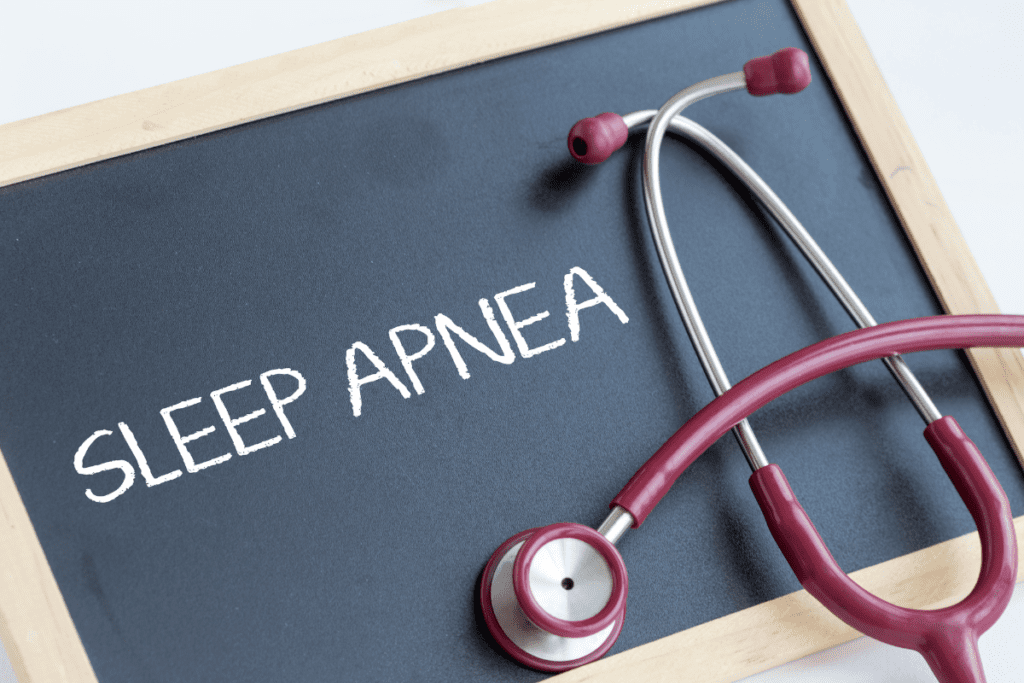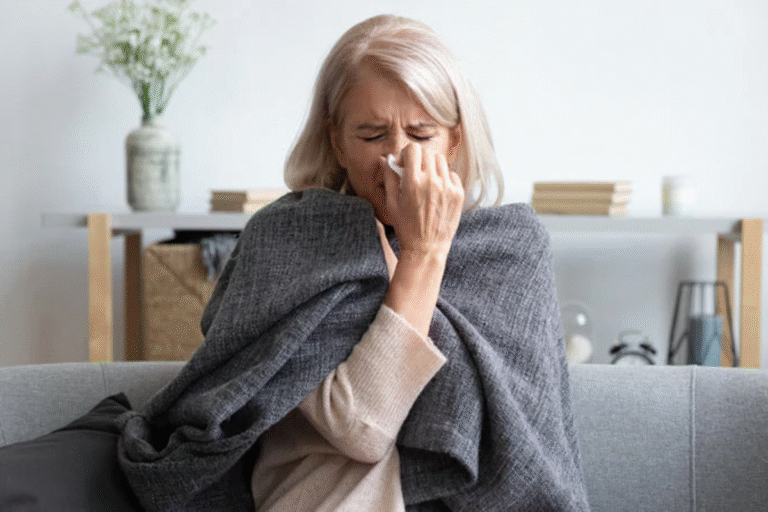
Sleep apnea, a common yet often underdiagnosed sleep disorder, becomes a significant health concern for women entering their 40s and beyond. During the perimenopausal transition, hormonal changes increase the risk of sleep apnea, even in women who have never experienced symptoms before. Recent guidelines recommend that all women over 40 be screened for sleep apnea, whether they show symptoms or not, as early detection and treatment can prevent serious health complications.
What is Sleep Apnea?
Sleep apnea occurs when breathing repeatedly stops and starts during sleep due to partial or complete obstruction of the airway (obstructive sleep apnea) or issues with brain signals controlling breathing (central sleep apnea). This disruption in breathing affects oxygen levels and sleep quality, leading to a range of symptoms and health risks.
Symptoms of Sleep Apnea
Women with sleep apnea often present different symptoms than men, making it more challenging to diagnose. Common symptoms include:
- Loud snoring
- Gasping or choking during sleep
- Daytime fatigue or sleepiness
- Morning headaches
- Insomnia or difficulty staying asleep
- Dry mouth or sore throat upon waking
- Difficulty concentrating or memory issues (“brain fog”)
- Irritability or mood changes
- Frequent nighttime urination
Why Perimenopause Increases the Risk of Sleep Apnea
- Hormonal Changes: Declining estrogen and progesterone levels impact muscle tone in the airway, increasing the risk of obstruction.
- Weight Gain: Hormonal shifts often lead to weight gain, particularly around the abdomen and neck, which can worsen sleep apnea.
- Insulin Resistance: Common in perimenopause, insulin resistance can exacerbate metabolic dysfunction associated with sleep apnea.
Risks of Untreated Sleep Apnea
Sleep apnea is more than just a sleep problem—it’s a significant health risk. Untreated sleep apnea can lead to:
- Heart Disease and Stroke: Increases the risk of hypertension, arrhythmias, and other cardiovascular conditions.
- Difficulty Losing Weight: Poor sleep disrupts metabolism and increases hunger hormones, making weight loss challenging.
- Metabolic Disorders: Exacerbates insulin resistance and increases the risk of type 2 diabetes.
- Cognitive Decline and Dementia: Chronic oxygen deprivation and poor-quality sleep contribute to memory loss and a higher risk of Alzheimer’s disease.
- Depression and Anxiety: Poor sleep can worsen mental health symptoms.
Treatment Options for Sleep Apnea
Treatment for sleep apnea ranges from simple lifestyle modifications to medical interventions:
1. At-Home Remedies
- Mouth Taping: Encourages nasal breathing during sleep, which can reduce snoring and mild apnea symptoms.
- Weight Management: Losing even a small amount of weight can improve airway obstruction.
- Sleep Positioning: Sleeping on your side instead of your back may reduce apnea episodes.
- Avoid Alcohol and Sedatives: These relax airway muscles, increasing the risk of obstruction.
2. Medical Interventions
- Sleep Study: A diagnostic test to confirm sleep apnea, which can be done in a lab or at home with portable devices.
- CPAP Therapy: Continuous Positive Airway Pressure (CPAP) is the most effective treatment for moderate to severe sleep apnea. Modern machines are quieter, more comfortable, and easier to use than older models.
- Oral Appliances: Custom-fitted devices that adjust the position of the jaw to keep the airway open.
- Surgery: In severe cases, surgical options such as UPPP (uvulopalatopharyngoplasty) or Inspire therapy (a nerve stimulator for the tongue) may be recommended.
Addressing Common Concerns About Sleep Apnea Diagnosis and Treatment
Many women hesitate to seek help for sleep apnea due to fears or past experiences:
- Fear of the Diagnosis: Remember, knowing the cause of your sleep issues is the first step to improving your health and quality of life.
- Concerns About CPAP Machines: Modern CPAP machines are quieter, more portable, and come with customizable masks for greater comfort.
- Past Treatment Failure: If a CPAP didn’t work for you in the past, newer alternatives like oral appliances or positional therapy may be better options.
- Cost or Accessibility: At-home sleep studies are affordable, and insurance often covers treatment once sleep apnea is diagnosed.
Seeking help for sleep apnea isn’t about adding complexity to your life—it’s about improving your health, energy, and longevity.
Further Reading and Resources
- The Sleep Solution: Why Your Sleep is Broken and How to Fix It by Dr. W. Chris Winter
- Why We Sleep by Dr. Matthew Walker
- Research Articles:
Sleep Support at Antigravity Wellness
At Antigravity Wellness, we understand the critical role sleep plays in overall health and well-being. We provide sleep study referrals, help navigate treatment options, and address sleep disturbances and disorders as part of our comprehensive care for women.
If you’re concerned about sleep apnea or other sleep issues, schedule a brief initial consult today to explore how we can help you achieve restorative sleep and better health.




